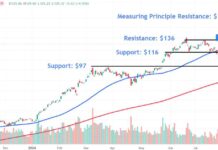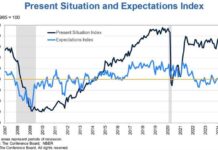Wealthy investors and family offices have been cautious leading up to the recent stock market swings, but many saw the drop in prices as an opportunity for tax savings and estate planning, according to wealth advisors. Private banks and wealth managers noted that their clients had been reducing their stock holdings for over a year, shifting from public to private markets due to concerns about an overheated tech sector.
For example, a UBS family office survey revealed that family offices allocated 35% of their portfolios to private equity, the largest asset class, as opposed to just 28% in equities. On the other hand, a Deloitte survey indicated that family office holdings of equities declined from 34% to 25% between 2021 and 2023, while private equity investments increased from 22% in 2021 to 30% in 2023.
When the stock market experienced a downturn with the S&P 500 and Nasdaq down by 3%, wealthy investors did not panic or hastily purchase stocks. Instead, they were more curious about the situation and sought to understand the reasons behind the market volatility. Sean Apgar, a partner at BBR Partners, mentioned that their ultra-wealthy clients, who are worth hundreds of millions or billions, tend to stay calm during short-term market events due to their long investing horizons.
Furthermore, the decline in prices presented an opportunity for wealthy investors to utilize tax benefits and gift strategies. For instance, William Sinclair from J.P. Morgan Private Bank highlighted the use of separately managed accounts for tax-loss harvesting, where clients could sell depreciated stocks to offset capital gains and later repurchase the stocks. Additionally, gifting stocks that have decreased in value allows investors to take advantage of the gift and estate tax exemption before it expires.
Corporate founders and top executives, who often have a significant portion of their wealth tied to a single company stock, can benefit from complex hedges to mitigate the impact of stock declines. Advisors are helping these individuals structure strategies like variable prepaid forwards and exchange funds to manage risks associated with concentrated stock positions.
In light of recent market volatility, wealthy investors and family offices are increasingly turning to alternative investments, such as private equity, real estate, and direct stakes in private companies. The stability and long-term profitability of private companies, along with the ability to have a more direct impact on management decisions, make them an attractive option for many investors.
Overall, high-net-worth investors are starting to explore alternative assets more actively, following the lead of family offices. The recent market fluctuations have served as a catalyst for greater diversification into private markets and alternatives, as investors seek to build resilient portfolios in the face of geopolitical risks and fiscal uncertainties. As the investment landscape continues to evolve, wealthy individuals are adapting their strategies to navigate the changing market conditions effectively.

















